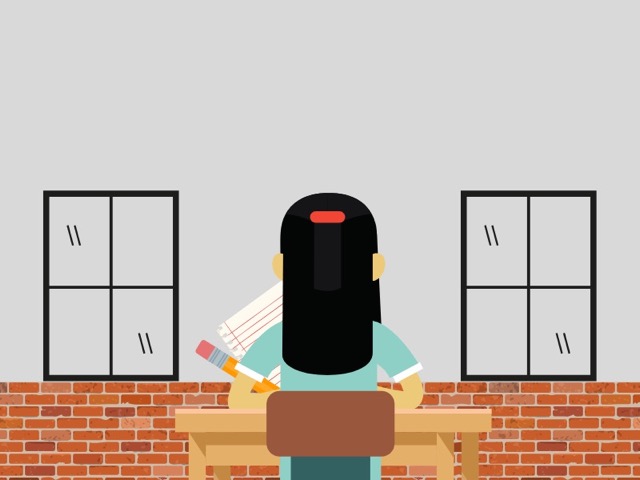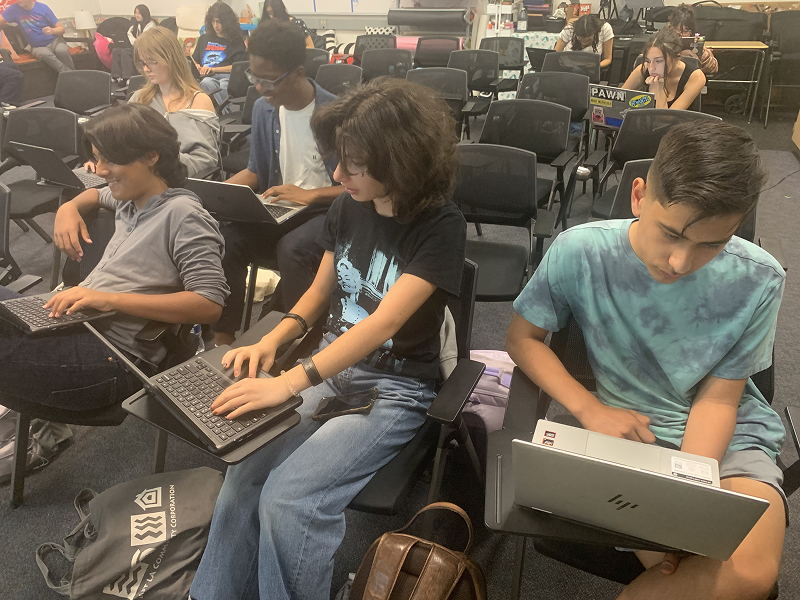Looking back on the past two years, I can confidently say that no club has shaped me, or received more of my time and dedication, than CSArtisan. And while it’s true I’ve spent many long nights trying to puzzle out the seemingly endless amount of things that can go wrong when one is putting together a newspaper publication, being involved in this whole process has truly allowed me to blossom into the writer I am today.
I’ve learned so much from every person who comes through the CSArtisan. I’m especially grateful for those who have helped me along the way. Thank you Mr. Blair, for fostering a love of newspapers in me despite the difficulties that arise with every publication. Thank you Evyn, not just for keeping me sane, but for helping me laugh through it all. And, thank you Minji, who showed me how to lead and be confident with every forward step I take.
One of the most rewarding parts of this process is just being able to read about events on campus and feeling like I get to attend every single one through each article. Over the past years I’ve learned just how important accurate news information is. Whether we’re reporting on a recent movie, a student play, or the effects of school policy on our student population, I’ve witnessed how helpful having access to accurate and unbiased information is. I have also, however, witnessed the importance of maintaining access to free and independent information. Around the world, journalism has often been one of the first things to come under fire in times of rising authoritarianism or political instability. Throughout history, we’ve seen how governments can manipulate information to control public perception. Even in modern contexts—from the targeted discrediting of AP News sources to media blackouts in conflict zones—these patterns persist.
That’s why media literacy matters now more than ever. We must stay vigilant, especially in a digital landscape where information is constantly fed to us by algorithms designed to reinforce existing beliefs. Here’s what I’ve learned to keep an eye out for:
- Check the source: Is it reputable, or does it have a clear political or commercial agenda?
- Look for sensationalism: Headlines designed to provoke emotional reactions often sacrifice accuracy.
- Cross-reference information: See if other reliable outlets are reporting the same facts.
- Beware of false balance: Not every issue has two equal sides—some “debates” are manufactured to create doubt.
- Analyze imagery and language: Are certain groups being portrayed with loaded words or dehumanizing visuals?
- Consider who’s being quoted—and who’s not: Whose voices are being centered or silenced?
Propaganda thrives in environments where critical thought is discouraged. So let’s encourage each other to question, to read widely, and to protect the integrity of truthful reporting.
To everyone who’s been part of this journey—whether as an editor, writer, advisor, or reader—thank you. I’ve grown not just as a journalist, but as someone who believes deeply in the importance of truth, transparency, and community. Here’s to the stories we’ve told, the truths we’ve uncovered, and the voices we’ve uplifted. And here’s to continuing that work with courage, care, and curiosity.
Stay safe, stay sharp, and never stop asking questions.

 Next Steps for Juniors
Next Steps for Juniors